#Fritz Eichenberger
Explore tagged Tumblr posts
Photo
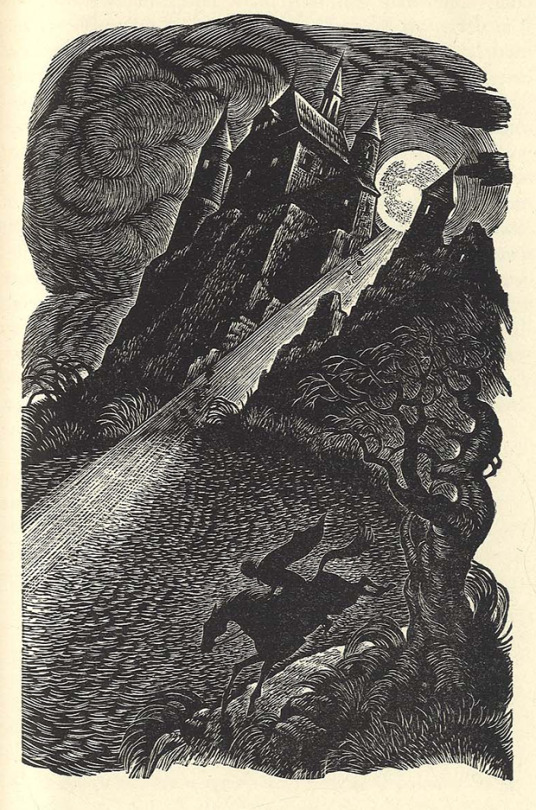
The Fall of the House of Usher 'by Edgar Allan Poe, illustrated by Fritz Eichenberg, 1944
4K notes
·
View notes
Text

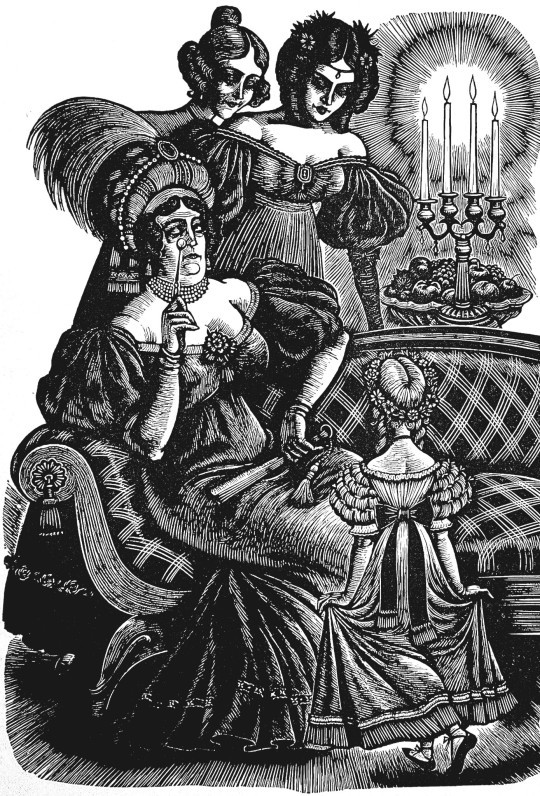


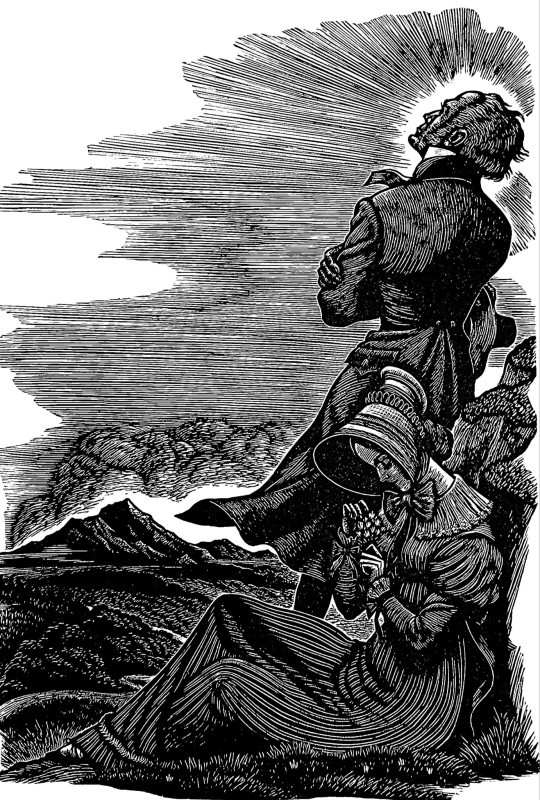
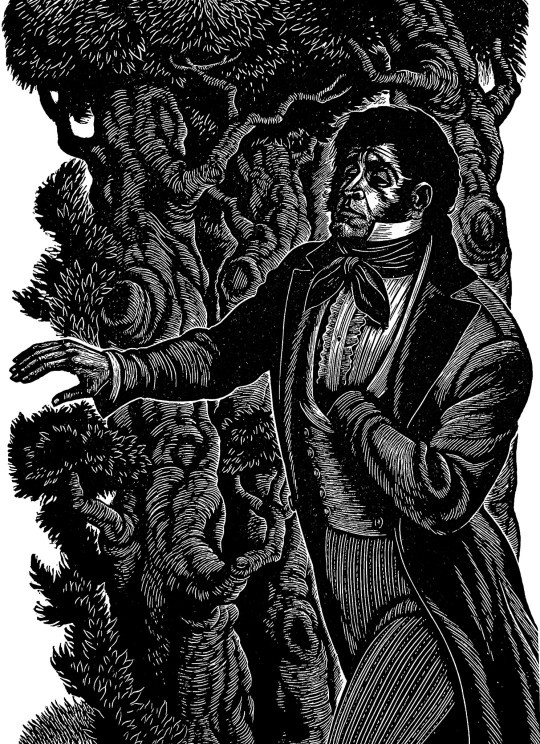
From our stacks: Illustration from Jane Eyre by Charlotte Brontë. With Wood Engravings by Fritz Eichenberg. New York: Random House, 1943.
#jane eyre#charlotte bronte#charlotte brontë#fritz eichenberg#books#illustration#engraving#wood engraving#literature#book#book illustration#detroit public library
490 notes
·
View notes
Text

Chanukah, 1976, from the series Six Holy Days - Fritz Eichenberg
241 notes
·
View notes
Text
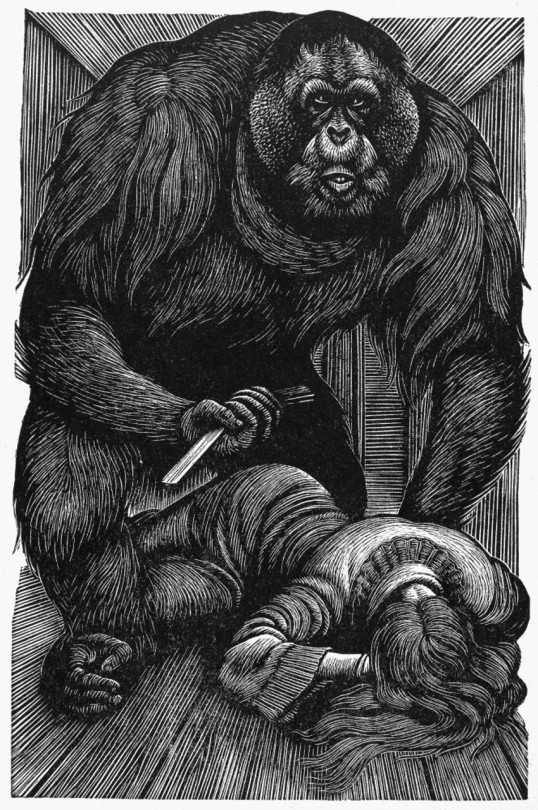
Fritz Eichenberg (1901-1990) - The Murders In The Rue Morgue, 1944
#fritz eichenberg#the murders in the rue morgue#edgar allan poe#horror art#art#illustration#wood engraving
140 notes
·
View notes
Text

Fritz Eichenberg, City Lights, 1934. Wood engraving on paper.
Photo: Smithsonian American Art Museum
#vintage New York#1930s#Fritz Eichenberg#theater district#engraving#vintage Broadway#City Lights#1930s New York#New York art
41 notes
·
View notes
Text
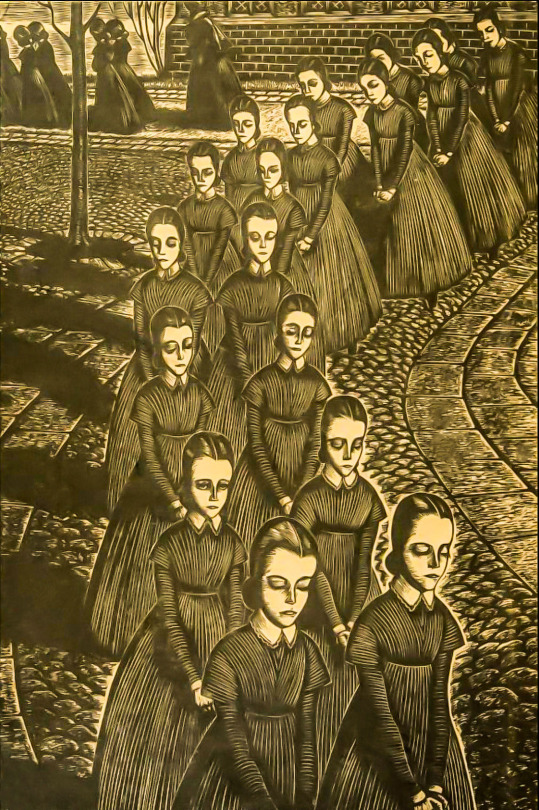

JANE EYRE by Charlotte Brontë (New York: Random House, 1943). Illustrations by Fritz Eichenberg.





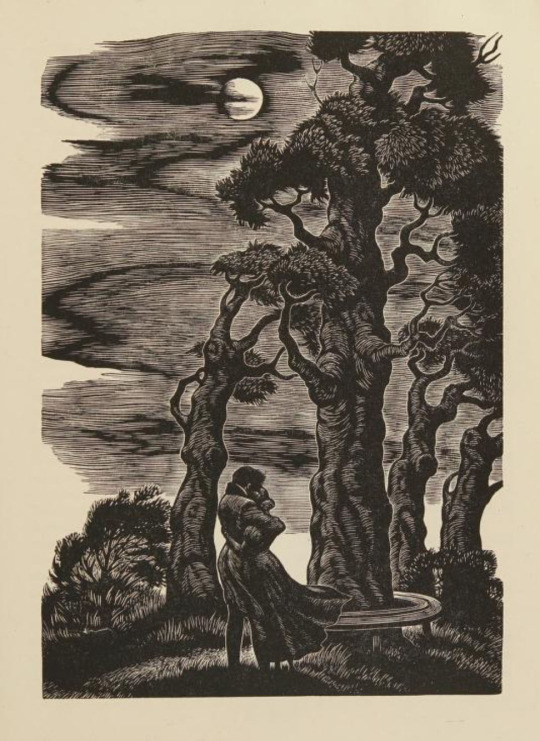

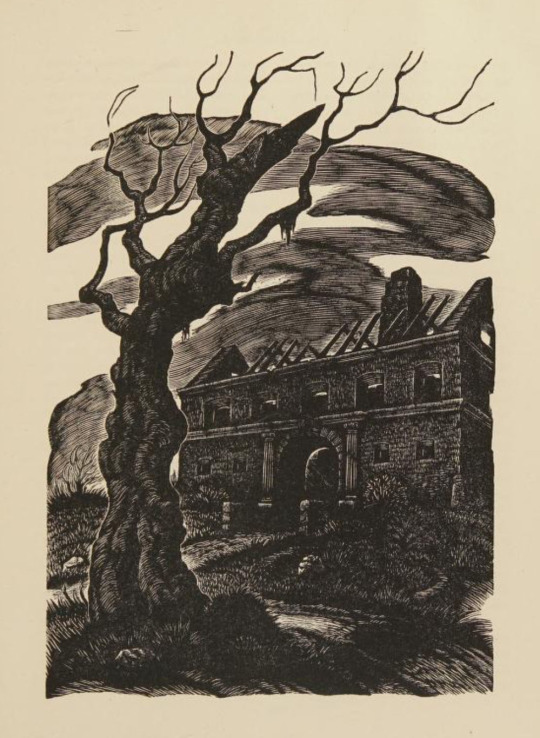
source
#beautiful books#book blog#books books books#book cover#books#vintage books#illustrated book#jane eyre#charlotte bronte#fritz eichenberg#book design
288 notes
·
View notes
Text
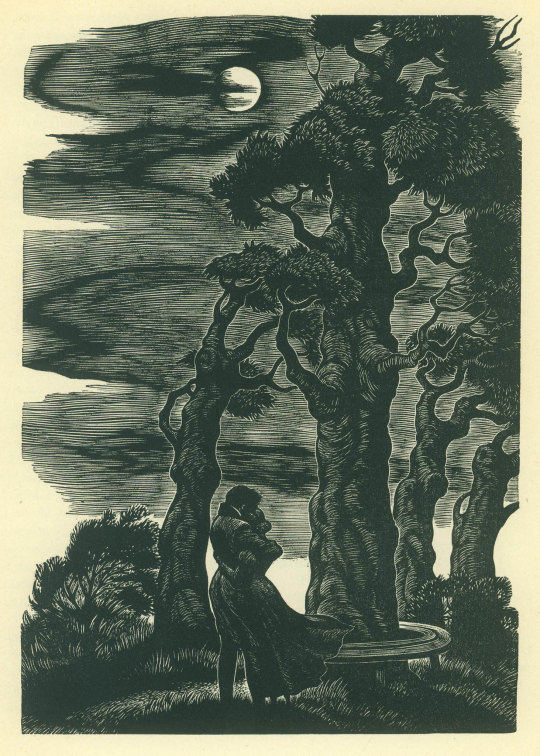
Jane Eyre Random House, 1943 Woodcut by Fritz Eichenberg
980 notes
·
View notes
Text

Fritz Eichenberg "Wuthering Heights" Illustration, 1943.
"I was going to the Grange one evening—a dark evening, threatening thunder—and, just at the turn of the Heights, I encountered a little boy with a sheep and two lambs before him, he was crying terribly, and I suppose the lambs were skittish, and would not be guided.
"What is the matter, my little man?" I asked. "They's Heathcliff and a woman, yonder, under t' Nab," he blubbered, "un' Aw darnut pass 'em."
I saw nothing; but neither the sheep nor he would go on, so I bid him take the road lower down. He probably raised the phantoms from thinking, as he traversed the moors alone, on the nonsense he had heard his parents and companions repeat."
—Emily Brontë "Wuthering Heights" (1847).
#Fritz Eichenberg#Wood Engraving#Wuthering Heights#Emily Brontë#Illustration#Book Illustration#Artwork#Art#Catherine Earnshaw#Heathcliff#Literature#19th Century Literature#19th Century English Literature#English Literature
12 notes
·
View notes
Photo
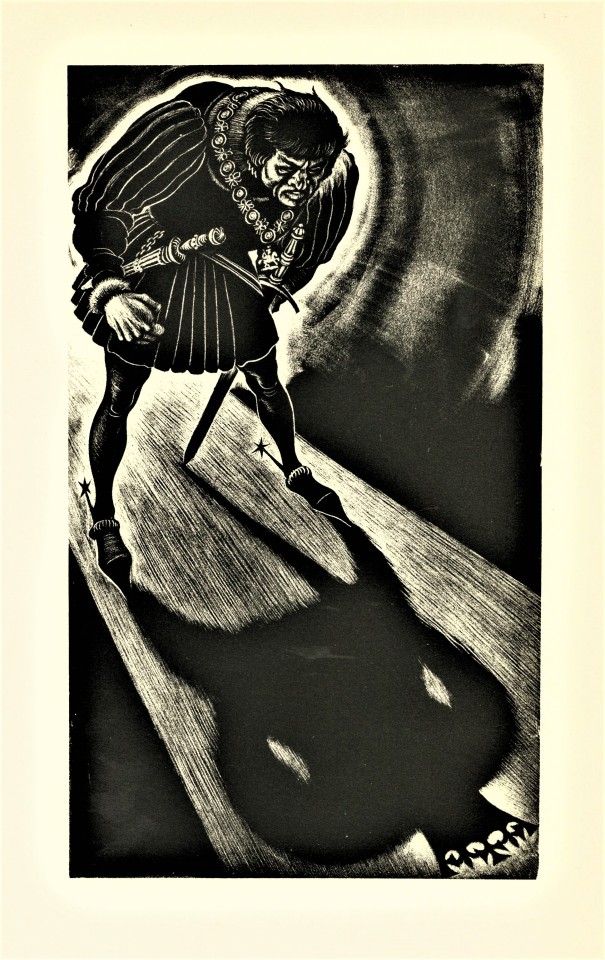

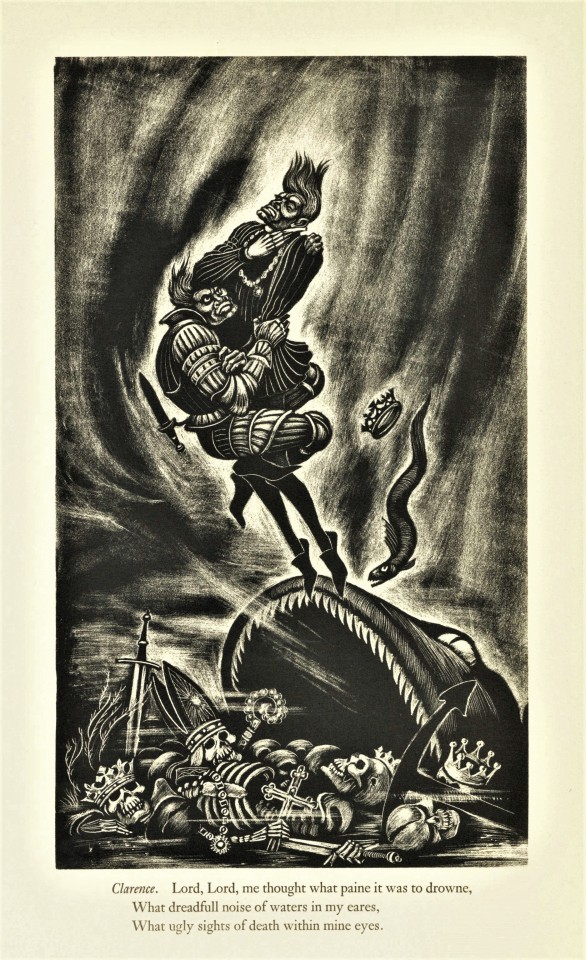



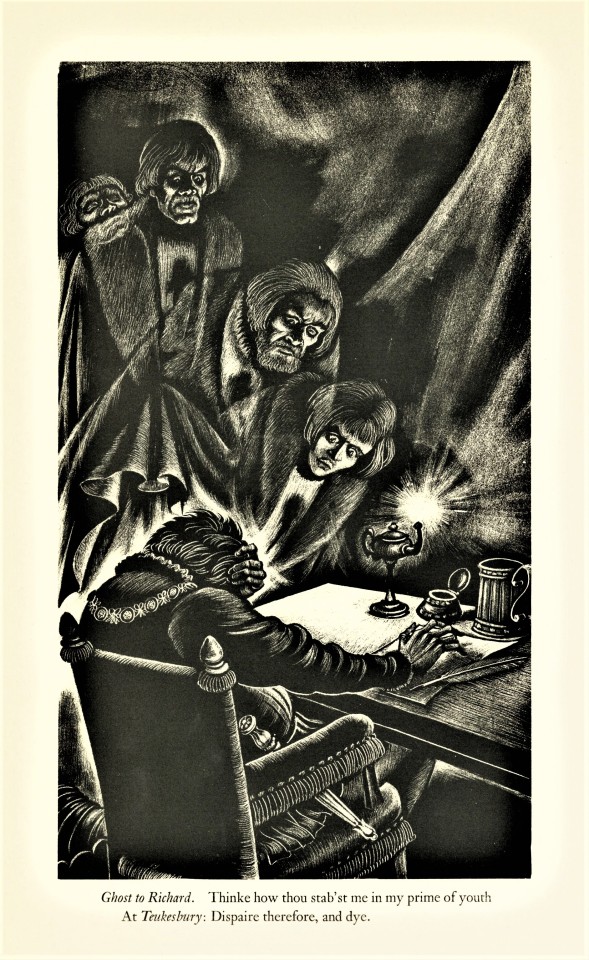
Shakespeare Weekend
Shakespeare’s historical tragedy, Richard the Third, is volume nineteen of the thirty-seven volume The Comedies Histories & Tragedies of William Shakespeare, published by the Limited Editions Club (LEC) from 1939-1940. The play was likely produced in 1594. It was first printed in 1597 in quarto where it was considered a tragedy, but was published in the First Folio in 1623 among the histories. The German-born American illustrator, Fritz Eichenberg (1901-1990), was the LEC’s third choice as illustrator for this volume. Their first choice was the English painter, Frank Brangwyn (1867-1956), who accepted the project, but became too ill to begin. Their second choice was, the English painter, Edward Ardizzone (1900-1979), who was one of the British Official War Artists. Ardizzone produced a series of watercolors for the book, and they were reproduced for this publication by the lithographer Fernand Mourlot, in Paris. When the Germans invaded Paris, Mourlot was able to escape. He loyally brought with him all of the reproductions of the watercolors, which he then shipped to New York. Unfortunately, the lithographs never reached the Limited Editions Club and are presumed to be at the bottom of the ocean.
Fritz Eichenberg said of illustrating Richard the Third:
I think it is impossible for a modern artist to dissociate his thoughts from the events and emotions of his day... When I tried to fathom Richard’s character, it did not seem to me different from any other power-greedy, bloodthirsty usurper: be it Nero or Hitler.... The artist looks around in his world and he will find living parallels that will make those shadowy tyrants of the past come to life again.
I looked for a technique that equaled wood-engraving in its poignant darkness and sparse highlights, something that corresponded with the nightmarish quality of the play in its gloomy darkness. I think I found the proper medium in these stone engravings, scraped out of the darkened lithograph stone with the help of diamond, knife and razorblade, wonderfully precise and willing tools in the hands of the artist, but still, when you think of them in terms of a Richard III, just as precise instruments of bribe, murder and destruction.
The volumes in the set were printed in an edition of 1950 copies at the Press of A. Colish, and each was illustrated by a different artist, but the unifying factor is that all volumes were designed by famed book and type designer Bruce Rogers and edited by the British theatre professional and Shakespeare specialist Herbert Farjeon. Our copy is number 1113, the number for long-standing LEC member Austin Fredric Lutter of Waukesha, Wisconsin.
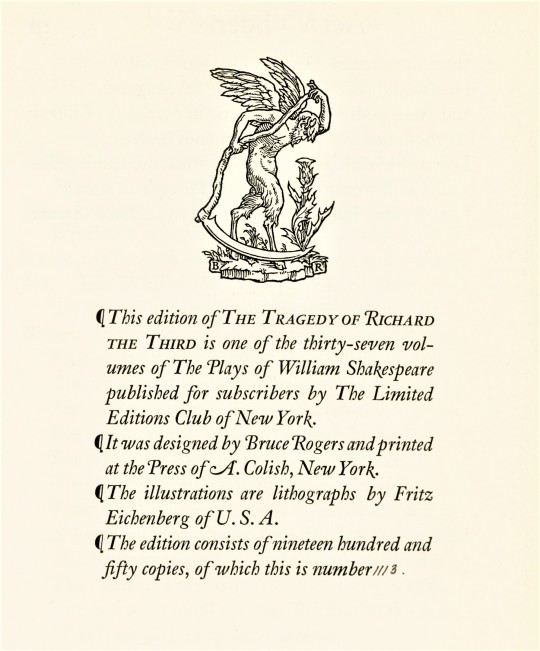
View more Limited Edition Club posts.
View more Shakespeare Weekend posts.
-Teddy, Special Collections Graduate Intern
#Shakespeare Weekend#William Shakespeare#Bruce Rogers#Herbert Farjeon#Press of A. Colish#Limited Editions Club#LEC#The Tragedy of Richard the Third#Richard the Third#Richard III#fine press books#Lithography#Fritz Eichenberg#Book illustration#Drawing#Reductive Drawing#teddy
132 notes
·
View notes
Text

Fritz Eichenberg - The murders in the Rue Morgue, 1944.
43 notes
·
View notes
Text

No refeitório
"O refeitório era uma grande sala sombria, de tetos baixos. Sobre duas longas mesas fumegavam duas terrinas que, para minha grande consternação, deitavam um cheiro nada apetitoso."
Charlotte Brontë, "Jane Eyre"; ilustração de Fritz Eichenberg.
15 notes
·
View notes
Text

From our stacks: Illustration from Jane Eyre by Charlotte Brontë. With Wood Engravings by Fritz Eichenberg. New York: Random House, 1943.
#jane eyre#fritz eichenberg#charlotte bronte#charlotte brontë#illustration#books#book#cats#engraving#wood engraving#book illustration#detroit public library
80 notes
·
View notes
Text

Passover, 1976, from the series Six Holy Days - Fritz Eichenberg
37 notes
·
View notes
Text
Round 1, Bracket 4
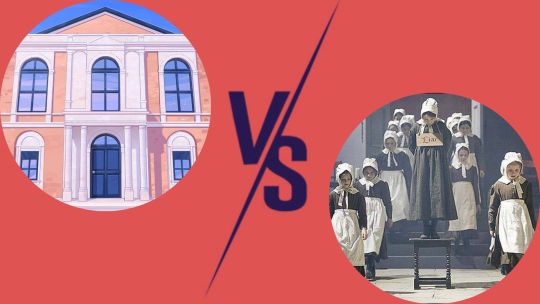
#i really wanted to use a fritz eichenberg illustration for lowood#because his jane eyre illustrations are such bangers#but unfortunately it wouldn't fit in the stupid circle format#(i chose circles because buildings of different shapes and sizes are harder to fit in a rigid shape than say faces but still)#anyway look up the eichenberg illustrations if you haven't seen them#they're great#hatoful boyfriend#jane eyre#tumblr polls#polls#bracket tournament#round 1#bracket 4
25 notes
·
View notes
Text

Fritz Eichenberg captured New York street life in The Steps, 1934, a wood engraving on paper.
Photo: Smithsonian American Art Museum
#vintage New York#1930s#Fritz Eichenberg#stoop#engraving#street life#urban life#vintage NYC#The Steps
56 notes
·
View notes
